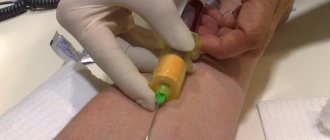Early signs of pregnancy before a missed period: truth and fiction
Early signs of pregnancy before delay - are there any?
Many women are sure that yes, there are, and are trying to discover them. Meanwhile, most of these symptoms are very, very doubtful, and the other part is nothing more than the lady’s self-hypnosis. But to be convincing, we will still consider various options for the early manifestations of an interesting situation.
Human chorionic gonadotropin is produced by the chorion (future placenta) from the moment the egg begins to develop in the uterus or other organ (during an ectopic pregnancy). Based on the level of human chorionic gonadotropin and its presence in general, one can draw conclusions regarding the presence of some dangerous diseases (when it is present in non-pregnant women and in men) and various pathologies of pregnancy. If we talk about changes in hormonal levels, such as early signs of pregnancy before a missed period, it should be noted that hCG appears in small quantities in the blood approximately a week after fertilization of the egg by the sperm. After 10 days, you can almost guarantee that you will get the correct result by taking the appropriate blood test.
If the level of this hormone is lower than it should be at a certain period, but the woman is exactly in position, then this may be caused by the following reasons.
- The fetus has stopped developing (frozen pregnancy).
- The fetus develops outside the uterus (ectopic).
- There is a serious risk of miscarriage.
No less dangerous reasons lead to the same result over long periods. Low hCG is observed with phyto-placental insufficiency, post-maturity, and also with intrauterine death.
The result is higher than normal when carrying 2 or more children, with hydatidiform mole - a very dangerous pathology that can lead to the development of cancer.
False-positive results, when these early signs of pregnancy before menstruation do not appear in expectant mothers, indicate the presence of a tumor process in the body. It makes no sense to take an hCG test if you take certain medications, for example, those containing gestagen.
False negative results may be due to the fact that the test was done too early, when no early signs of pregnancy had yet appeared before the missed period. Also, do not forget that this test must be taken in the morning on an empty stomach.
During pregnancy, the rectal temperature is above 37 degrees. The increase occurs during ovulation. However, this feature of female physiology should hardly be taken as an early sign of pregnancy before a missed period. An elevated temperature will occur if the egg is mature, regardless of whether conception has occurred or not. If menstruation does not occur at its usual time, and the temperature remains elevated, then it makes sense to look for other symptoms of pregnancy.
It is necessary to measure rectal temperature, following several very important recommendations. The most accurate measurements are obtained immediately after waking up, in the morning. Incorrect results may occur if you are ill, taking certain medications, or within a few hours after sexual intercourse.
Nausea, vomiting, changes in taste - these early signs of pregnancy appear extremely rarely before the delay. Therefore, if you suddenly feel unwell, you don’t need to immediately write it off as a possible interesting situation, but you shouldn’t take, say, antibiotics as a preventative measure without consulting a doctor either. As a rule, manifestations of toxicosis in the early stages are insignificant and irregular. It can only be mild nausea, increased salivation in the morning, and even increased appetite.
In very rare cases, during ovulation, small amounts of blood begin to be released from the vagina or a brown spotting discharge simply appears. This may be caused by the implantation of an egg into the endometrium of the uterus.
Pain in the lower abdomen
They may appear briefly as harbingers of ovulation and after some time, before the period of menstruation, become more regular and strong. Very reminiscent of premenstrual. However, sometimes such pain indicates a threatening spontaneous miscarriage. Pain may also occur during an ectopic pregnancy and during some other, non-gynecological pathologies, for example, with appendicitis.
Increased body temperature
These early signs of pregnancy before the delay appear extremely and extremely rarely. Over long periods of time, it is clear that the uterus puts pressure on the bladder and because of this, you want to go to the toilet more often. And in the short term, frequent urination is often a symptom of diseases of the urinary system, for example, pyelonephritis or cystitis. The first may be accompanied by fever and pain in the lower back, and the second by pain when urinating and in the lower abdomen, the temperature may also increase. So, if you have these symptoms, it would be a good idea to go to a urologist and get a urine test.
Unpleasant sensations in the mammary glands
Or rather, their tangible pain. For women who are familiar with mastopathy first-hand, this phenomenon will most likely be perceived as a symptom. In addition, the sensitivity of the nipples increases, the breasts themselves become larger, a loved one will definitely notice this. Early signs of pregnancy before menstruation include the discharge of droplets of whitish or yellowish liquid from the nipples - colostrum.
Increased vaginal discharge
The discharge is clear and odorless - these are early signs of pregnancy before menstruation, and, say, curdled or greenish - this is a sign of infection or pathogenic bacteria present in the vagina. In addition to increased discharge, sexual desire usually increases.
A gynecologist will be able to determine this during an examination on a chair. But before the delay begins, this may indicate not only pregnancy, but also, conversely, very early menstruation.
These are the known reliable and probable early signs of pregnancy before a missed period.
The first month of pregnancy is an important and very exciting period in the life of every expectant mother. In practice, it turns out that a woman spends most of this wonderful period of laying a new life either in ignorance or in doubt whether she succeeded in conceiving a child.
A test with two stripes and the absence of another menstruation are clear signs of pregnancy, but you really want to know from the very first day that the long-awaited baby has already been conceived and is going through the most difficult path of becoming a full-fledged person.
How does conception occur?
Fertilization is most favorable during the period of ovulation.
This physiological process is accompanied by the release of an egg from the ovary. Occurs in the middle of the menstrual cycle. During ovulation, the follicle ruptures. It is from this that the egg comes out ready for fertilization. The natural process can shift if the menstrual cycle is disrupted. Conception will occur earlier or vice versa later.
After release, the egg moves through the fallopian tube, which also contains sperm after sexual intercourse. The strongest and most viable sperm penetrates the wall of the egg and fertilizes it.
Progesterone prepares the surface of the uterus for fertilization in 2 days. The muscles of the uterus relax.
As soon as conception occurs, the fertilized egg moves to the uterus and is implanted there
The attachment of the egg may not take place for the following reasons:
- hormonal imbalances;
- unpreparedness of the endometrium;
- benign formations of the uterus.
Menstruation may begin if the fertilized egg cannot attach. The egg will leave the body with the monthly discharge. The thickness of the endometrium for successful fertilization should be about 7 mm. Otherwise, conception this month will be impossible.
Subjective feelings of a woman
The first signs of pregnancy before the delay, felt subjectively, can be noted by every expectant mother at the beginning of pregnancy, since incredible changes are already taking place inside the body, invisible to the eye, but revealing themselves through certain features of sensations. Women suffering from PMS may experience many of these symptoms (see symptoms of premenstrual syndrome and differences from pregnancy), but similar symptoms and changes may be felt almost immediately after conception. Moreover, if a woman does not suffer from PMS, then such changes can be mistaken for unusual ones.
| Malaise | Malaise in the first days of pregnancy can be mistaken for a mild cold, only without respiratory symptoms. There is rapid fatigue and tiredness |
| Emotional destabilization | Tearfulness, replaced by euphoria, joy and tears at the same time are frequent companions of developing pregnancy, especially in emotional and impressionable women |
| Drowsiness and restless sleep | Drowsiness and a feeling of lack of sleep are signs of pregnancy in the first days. There is a constant desire to sleep, but even a 12-hour sleep does not bring the feeling that the woman has had enough sleep. Characterized by sudden awakening early in the morning and inability to fall back to sleep |
| Change in libido | A change in libido, either increasing or decreasing, can be observed throughout pregnancy and begins from 2-3 weeks |
| Heaviness in the pelvic area | The feeling of fullness in the pelvic area due to increased blood flow to the pelvic structures is perceived by many women as the feeling of their own uterus |
| Tingling in the uterus | There are periodic mild tingling sensations in the area of the uterus |
| Lower back pain radiating to legs | Periodically there is pain in the lower back, similar to lumbago, radiating to the legs |
| Headaches, migraines | The headache may persist throughout the day and subside only at night |
| Increased or changed breast sensitivity | Excessive sensitivity of the mammary glands, manifested as a reaction to the slightest touch, pain is observed in most pregnant women. In some cases, a woman practically cannot touch her breasts - these unpleasant sensations are so strong. Loss of sensitivity is observed in those pregnant women who previously experienced increased breast sensitivity before menstruation |
| Feeling hot and cold | The feeling of suddenly feeling hot and then starting to shiver overwhelms a woman several times a day. Moreover, these sensations are internal and do not depend on external factors (weather, clothing, ambient temperature) |
| Increased appetite or strong cravings for certain foods | Many women note a brutal appetite and literally cannot move away from the refrigerator, since what they eat does not give them a feeling of satiety. Cravings for certain foods and drinks begin already at the beginning of pregnancy, and it is impossible not to notice this, since the pregnant body often chooses as a priority foods those that were previously absent from the diet |
| Nausea | Attacks of nausea, especially in the morning, which can lead to vomiting. Characterized by aversion to certain foods, memories of which automatically cause nausea |
| Increased sensitivity to odors and distortion of the olfactory senses | Rejection and even aversion to previously familiar smells - perfumes, cooked food, spouse's body, etc. Against this background, a craving for chemical odors (gasoline, acetone) may appear. Interestingly, some women begin to smell an atypical odor from products, for example, the smell of oil from fruits. These first signs of pregnancy appear 3-5 days after conception, the woman immediately notices unusual olfactory sensations |
| Discomfort while sitting | Literally from the first days of pregnancy, it is difficult for the expectant mother to find a comfortable position in a sitting position; the feeling that something is in the way does not leave the woman, which forces her to fidget in her chair and change her position |
Early toxicosis
The most common and well-known sign of pregnancy is early toxicosis (nausea). It occurs early in pregnancy - usually between 6 and 12 weeks, but in some cases earlier. Most often, attacks of nausea occur in the morning, but for some women, toxicosis can also roll in like a wave throughout the day, regardless of food intake. In rare cases, nausea progresses to vomiting, but this happens very rarely and even less often in very early pregnancy.
Toxicosis itself is one of the very unpleasant signs of pregnancy, but its presence in the early stages can be considered a positive sign, since it indicates the presence of a healthy, stable pregnancy and a constant increase in the hCG hormone. It must be remembered that in the opposite case, the absence of toxicosis does not indicate the absence of pregnancy. Every woman is individual.
Physiological and laboratory changes
Physiological changes sometimes frighten a woman and force her to see a doctor, but in fact, these may be signals that the first stages of pregnancy have begun, and the body is intensively changing to suit the interests of a new life.
| Early pregnancy factor | This is a special substance found in the blood of pregnant women or cervical mucus 28-48 hours after conception. According to international studies, this factor is found in 67% of pregnancy cases. Its growth is observed throughout the first trimester. This diagnosis has not yet found widespread practical application, although some doctors use it. |
| Growth of the hormone hCG - human chorionic gonadotropin | Special tests or analyzes determine the increase in hCG levels, which indicates the presence of pregnancy and its normal course. It is important that this indicator increases even before a missed period:
|
| Bloody vaginal discharge | Normally, it is difficult to call them discharge; rather, it is smearing or small droplets of yellowish or pink discharge. Their onset occurs 7-12 days after conception and indicates the consolidation of the embryo in the uterine cavity. The cervix may also bleed if there is a history of erosion - increased blood circulation during pregnancy leads to increased bleeding |
| Exacerbation of hemorrhoids | Since blood flow to the pelvic organs increases, hemorrhoids may worsen in the first weeks |
| Increased basal temperature | The first weeks of pregnancy, before the placenta begins to function, are characterized by an increased basal temperature of more than 37 C (37.1-37.5) - before menstruation, in the case where conception has not occurred, the basal temperature drops from 37.2 - 37.3 to 36 ,6-36,8 and the next day menstruation occurs. And if on the days of your next menstruation the temperature remains above 37, this may be a consequence of either pregnancy or simply a delay due to late ovulation. |
| Calf muscle cramps | This phenomenon occurs at night and forces the woman to wake up |
| Low pressure | The decrease in pressure is especially obvious in hypotensive patients, since their numbers reach 90/60 mmHg. and lower, which leads to dizziness, weakness and even fainting. This phenomenon is caused by standing for a long time, staying in a stuffy room and in transport. |
| Implantation drop in basal temperature | Women who keep a basal temperature chart note a one-day decrease in temperature in the second phase |
| Reduced immunity | A decrease in immunity manifests itself as a mild cold in the form of a runny nose and pharyngitis. |
| Increased drooling | Often combined with nausea and aggravates the course of toxicosis |
| Increased vaginal discharge | Blood filling of the pelvic organs leads to increased secretion of vaginal secretions |
| Thrush | Since the vaginal secretion contains a large number of hydrogen ions, it becomes an excellent breeding ground for Candida fungi. Typical curdled discharge with itching indicates thrush, which must be treated |
| Increased frequency of urination | An increase in hormone levels, a rush of blood to the pelvis and increased kidney function lead to increased urination, both day and night. |
| Delayed menstruation | The absence of regular menstruation is the most obvious sign of pregnancy. During this period, the self-diagnosis test already begins to show two cherished lines |
What can discharge at different stages at the beginning of pregnancy tell you?
Since the beginning of the formation of the zygote, and then the embryo, is associated with hormonal changes, discharge of a different nature is allowed. However, in any situation, only additional control and examination will help establish the necessary diagnosis, which could be the reason for the formation of departments.
The obstetrician can tell a lot based on the discharge:
- child's illness;
- chronic maternal illnesses;
- hereditary factors;
- gestation period;
- risks during pregnancy.
In particular, examinations such as hCG level, its concentration, ultrasound, Doppler control and cardiogram play a huge role. All studies, tests and diagnostics are prescribed by the doctor.
What can discharge indicate, how can pathology be detected in time? It is worth paying attention to the following features:
- Yellow or green consistencies indicate the presence of pathogenic flora, in particular, we can talk about the spread of infections along the birth canal. The danger in this case comes from the consequences - infection of the fetus, cessation of the child’s life support.
- Abundant brown discharge is a risk of miscarriage, while in most cases the amount of consistency does not play a role; even a small but constant amount of brown discharge can mean a risk or threat to the baby.
- Transparent liquid discharge without pain is a sign of normal pregnancy development. Abundant, thick, colorless, odorless and impurity-free - the norm at any age.
- Bloody ones may indicate the presence of injuries, microcracks and irritations. The nature of such a manifestation should only be determined by a gynecologist.
Getting pregnant is just the first step on the path to happiness and motherhood
Discharge shows the normal or abnormal course of fetal development, so the first thing a woman pays attention to, regardless of the period, is changes in the discharge
Symptoms of conception after delayed menstruation
Of course, every woman who has discovered a delay in menstruation is interested in the question of how long it will take for the first signs of pregnancy to become guaranteed evidence of its onset. This question forces expectant mothers to immediately run to the gynecologist and demand registration. However, doctors do not really welcome this behavior, and, most likely, will send the expectant mother to wait another 2-3 weeks. Conception, unfortunately, does not yet guarantee pregnancy, and the period of 4-6 weeks is the most dangerous, when the probability of spontaneous miscarriages is high.
The following first symptoms of pregnancy after a missed period can be called exact manifestations of the conception that has occurred, indicating that the fetus is growing and spreading:
Beli
There are often statements on various forums that white discharge is a sign of pregnancy. To some extent, this is true, because after the egg is released from the follicle and fertilized, the level of progesterone in the body increases, which increases the production of mucous secretion by the glands of the cervical canal. This happens due to the fact that the uterus is preparing for transplantation of the fertilized egg and is actively cleared of pathogenic microorganisms.
However, it is impossible to say for sure that white discharge before menstruation is a sign of pregnancy, since increased production of leucorrhoea can also occur for other reasons, for example:
- While taking medications (some, before conceiving a child, undergo a course of drug treatment to eliminate inflammatory and infectious processes in the reproductive organs and the risks of possible complications after conception).
- Abrupt climate change.
- Stress and worries.
- Use of lubricants.
- The use of intimate hygiene products with a high content of fragrances and dyes.
- Douching, etc.
For the same reasons, watery discharge appears, which does not have a specific aroma and does not provoke irritation in the intimate area. However, in some cases, for example, when allergic reactions occur, copious white or transparent discharge may appear, accompanied by itching and burning. Allergies occur to hygiene products, male semen, lubricants, fabric from which underwear is made, etc.
In the event that the above-mentioned first signs of pregnancy and discharge appear, this may indeed indicate the successful conception of a child. To clarify this point, you can use a pregnancy test. But if the period is still very short, then even with the appearance of abundant white discharge, it can give incorrect results. Typically, doctors recommend using the test during a delay that lasts 1–3 days or more.
It should also be said that on some forums they also say that discharge in the middle of the cycle is a sign of pregnancy and you should definitely take care of your health by switching to proper nutrition and giving up bad habits. However, such a statement is incorrect. From the middle of the menstrual cycle, the body begins to actively produce progesterone and the maturation of the egg. In other words, ovulation occurs, and there can be no talk of any pregnancy here yet. If fertilization does not occur at this moment, then after 10–14 days the next menstruation occurs. Therefore, it is not worthwhile to determine the onset of pregnancy by this sign before a missed period.
The very first signs of conceiving a boy
What are the first signs of pregnancy in favor of conceiving a boy? You can trace these manifestations already in the first days of conception; you just need to listen carefully to yourself. Naturally, these may not be 100% signs, but most mothers described their condition this way when they were carrying boys.
| Appearance | Visible improvement in the appearance of a woman who literally blossoms, acquiring peachy, matte skin, thick and beautiful hair and nails |
| Extremity temperature | Reduced skin temperature of the lower extremities against the background of a feeling of internal warmth (cold legs with a feeling of heat) |
| Appetite | A noticeable increase in appetite from the first days of pregnancy. Meat and meat products are becoming a favorite food for expectant mothers |
| Nausea | No nausea or minor symptoms of mild nausea |
| Mood | Good mood, high performance and even a noticeable increase in activity in general |
| stomach | Rounding of the lower abdomen in the form of a small bulge. It is difficult to notice this from the first weeks, but very attentive women can catch this slight difference of 1-2 |
Early signs of pregnancy with a girl
Pregnancy with a girl also has its own distinctive features, which can be traced already in the first weeks after conception, again with the caveat that this is the case for most women, but there are exceptions.
| Appearance | Change in appearance for the worse (around the 3rd week of pregnancy). The face seems to lose its attractive features. It is clear from the woman’s face that she is pregnant (her lips become swollen, her skin becomes pale and swollen, etc.) |
| Extremity temperature | Increased skin temperature of the lower extremities against the background of chills (warm legs with a feeling of internal chills) |
| Appetite | Decreased and even lack of appetite from the first days of pregnancy. Food preferences include a craving for sweets and citrus fruits |
| Nausea | Morning nausea, which calms down somewhat in the evening, is typical for almost all pregnancies with girls. |
| Mood | Unpredictability of actions, frequent mood swings, confusion of thoughts and actions indicate the possibility of conceiving a girl. |
| Stomach | The abdomen does not visually enlarge, rather it even sinks slightly, which is associated with weak appetite due to nausea |
First signs of pregnancy before delay
The first signs of pregnancy may be subtle and can be easily confused with symptoms of illness or fatigue.
One of the very first signs is implantation bleeding. It occurs on the 6th–12th day after conception. As a result of the embryo planting on the uterine wall, small blood discharge from brown to light yellow appears.
Such discharge can be intense or may not appear at all. Many people mistakenly take them for the beginning of menstruation, so they do not attach much importance. At the same time, such discharge may indicate erosion of the cervix, which increases with the onset of pregnancy.










